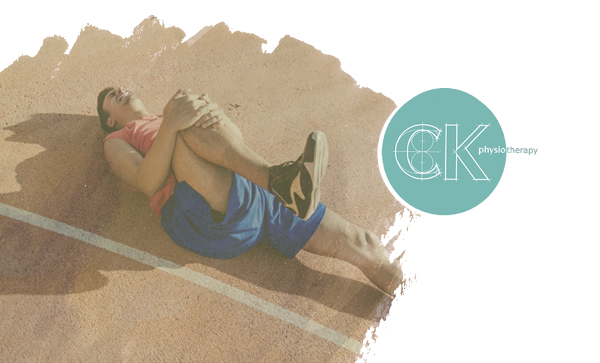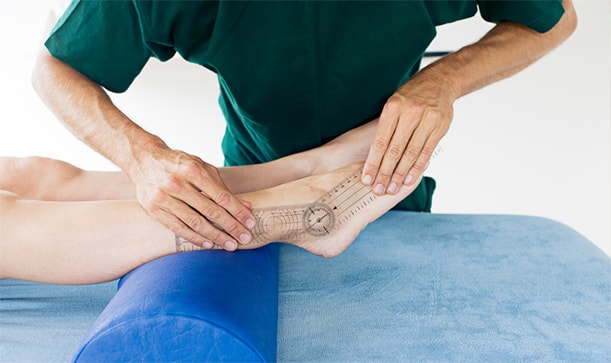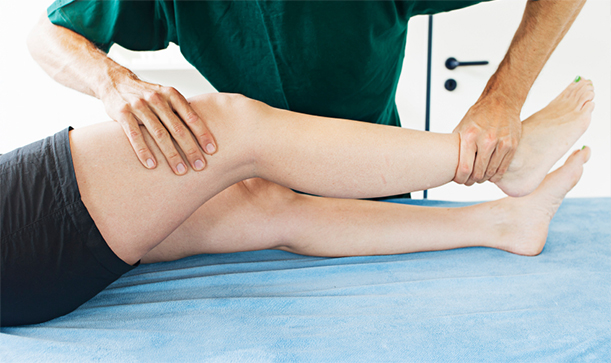CK Physiotherapy
AREAS COVERED
W7, W5, W13, Ealing, West London
57 Elthorne Avenue
Hanwell, W7 2JY
T: 020 8566 4113
M: 079 572 46185
E: info@ckphysio.co.uk
Location / Parking
We are situated in Hanwell, between Boston Manor Road and Northfields Avenue, south of the Uxbridge Road.57 Elthorne Avenue
Hanwell, W7 2JY
There are parking restrictions Mon - Fri 9-10am and 2-3pm. If you need a permit during this time please inform your therapist when you arrive. There are no parking restrictions at other times.
Opening Times
Please phone the number above during working hours to make an appointment. Our reception service will be happy to book your session.
London Underground / Bus Services
London Underground
10 min. walk from Boston Manor Tube Station.
15 min. walk from Northfields Tube Station.
Bus Service
E8, E3, E2, 207, 607, 83
Request Call Back
Our Blog
Physio Expert Tips to Avoid Sports Injuries
By: BryanKelly (Psst, View author in Google Plus) Date: Mar 10th, 2020This summer, the eyes of the world will turn to Tokyo, Japan as it showcases the very best athletes on the planet for the Summer Olympics. While most viewers' focus will be on the pageantry and competition, there is an unfortunate risk almost all Olympic athletes face: the risk of a sports injury.

Recap of Sports Injuries in the Olympic Games
With thousands of competitors vying for medals in dozens of sports, injuries are a sad but inevitable reality of the Olympic Games. Look at the following figures from two Summer Olympics to provide context for how often injuries occur:
• In Beijing in 2008, 1,055 out of 10,942 athletes suffered injuries. 27.5% suffered these injuries while training while 72.5% suffered them in competition. 49.6% of the injuries forced the athlete to either halt training or competition.
• In London in 2012, the number of athletes went down while injuries increased. 1,361 out of 10,568 athletes suffered injuries. 45% suffered these injuries while training while 55% suffered them in competition. 35% of the injuries forced the athlete to either halt training or competition.
The 2016 Rio Summer Olympics were no different. One gymnast suffered a fractured tibia, a cyclist broke his collarbone, and another cyclist flew over his handlebars while sustaining multiple injuries. Olympic athletes train at a ridiculous rate and compete at a high level. But you don't have to be an Olympic athlete to want to push for top performance.
Whether you're trying to qualify for a spot on the Olympic team or just want to be your best at a sport you enjoy participating in regularly, there are a set of best practices you can follow to minimize the chance of injury.
Let's take a closer look at some of those best practices for avoiding sports injuries and the practice that can help manage those injuries: physiotherapy.
Difference between Olympic Competitors and Weekend Enthusiasts
According to Dr Gloria Beim, the chief medical officer for the US 2014 Winter Olympics team, the difference between Olympic athletes and normal competitors is the amount of training each one does. Part-time athletes tend to train intermittently while Olympic athletes train all the time.
Take, for example, an Olympic football player. They're likely working on their conditioning on a year-round basis. They're performing drills meant to help keep them in shape for times when they're competing in actual games. If you're only not preparing your body to play when the games aren't going on, your odds of an injury increases. Off-season conditioning can work wonders for both Olympic and non-Olympic athletes by keeping their bodies ready for action.
How to Avoid Sports Injuries
The key to avoiding sports injuries? Preparation. Maintaining a healthy diet is important, as ensuring your body has the nutrients it needs will keep you performing at a high level. There are also activities you can do to help keep your body in optimal shape.
Dr Beim added that non-Olympic athletes should consider performing flexibility and strength exercises as part of their normal routines. This helps keep their bodies balanced while lessening the chance of injury. It leads to better biomechanics and muscular balancing, which in turn decreases the odds of an injury that may keep the athlete sidelined for days, weeks, or months.
How to Prepare like an Olympian
Competing in the Olympic Games means taking your pursuit of the sport to another level. There are a few things to keep in mind before embarking on this journey. If you're fortunate enough to qualify for the Olympics - or just want to participate at a high level in the sport you love - here are some best practices you can follow:
Make sure to rest properly
Sleep and general rest are crucially important to becoming a great athlete. Hard work and maximum effort are an absolute requirement of course. But if you don't allow yourself time to recuperate, you'll be less likely to recover properly. This will hinder your performance.
Stick to your routine that works
If you've made it to the Olympics, congratulations! Make sure you stick with the routines that got you there. Your sleep patterns, diet, or workout habits should all remain largely the same. This goes for non-Olympic athletes as well - disrupting your routine can have unpredictable results on your body.
Enjoy yourself
Whether you're in the Olympics or advancing in a sport you love to compete in, don't forget what made you love the game itself. Take time to savour the competition and your ability to partake in it.
Physiotherapist's Role in Achieving an Athlete's Goals
But how do you put yourself and your body in a position to perform at a high level while minimising the risk of injury? Seek the help of a physiotherapist. According to the New Zealand Sports Physiotherapy Organisation, a physiotherapist is:
“A recognized professional who demonstrates advanced competencies in the promotion of safe physical activity participation, provision of advice, and adaptation of rehabilitation and training interventions, for the purposes of preventing injury, restoring optimal function, and contributing to the enhancement of sports performance, in athletes of all ages and abilities, while ensuring a high standard of professional and ethical practice.”
In short, physiotherapists work with athletes of all levels to help them prepare, maintain, or recover superior athletic achievement. They can give advice on safe ways to train and practice, rehabilitate an injury, or help increase an athlete's performance.
Find a Physiotherapist to Help You
Whether your Olympics is an actual international competition or just competing with friends on the weekends, you don't have to be an Olympic athlete to experience the same problems they do. You also don't have to be an Olympic athlete to find the help that enables you to avoid experiencing similar types of injuries.
Finding the right physiotherapist can help you prepare for Olympic competition - or any other type of competition you're looking for. They can do so in a way that maximizes your ability to avoid injuries, ensuring you have the best chance to achieve peak performance.
For more on the best physiotherapists in the London area, visit our website. CK Physiotherapy can help you avoid and manage a whole range of sporting hazards.





